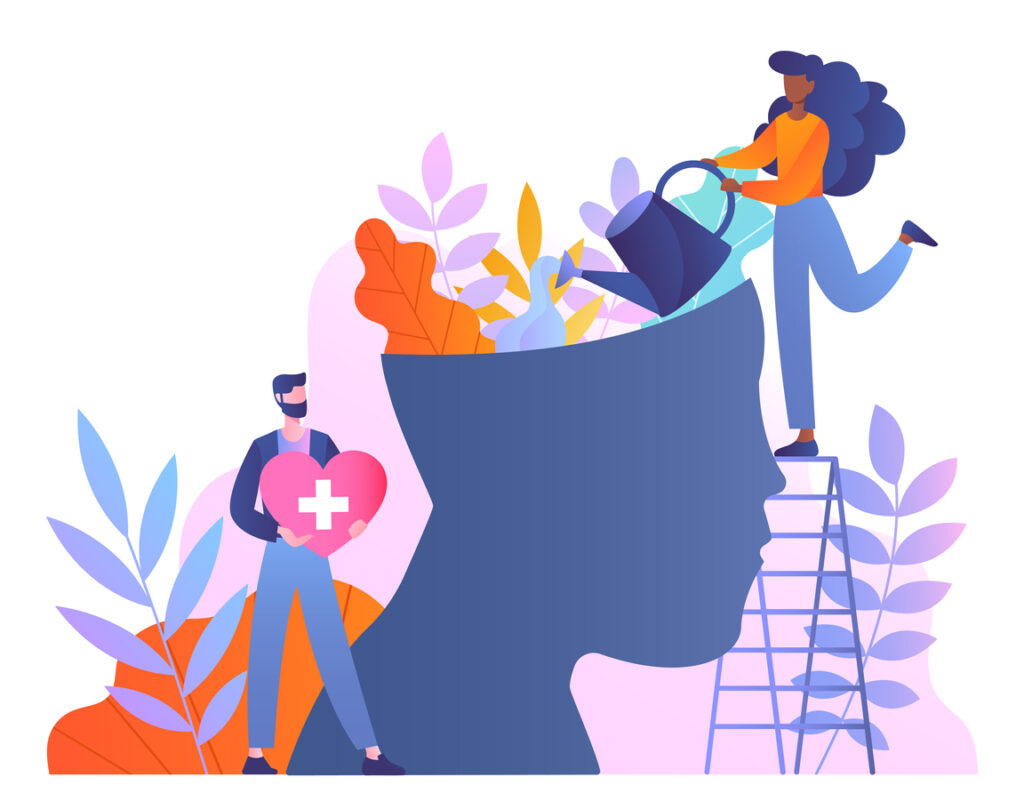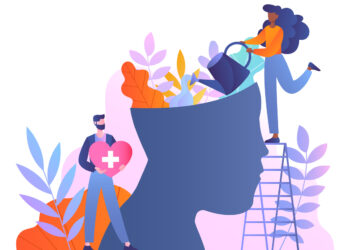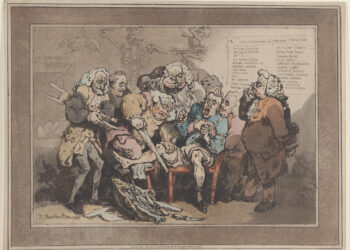Editor’s Note: Though we’ve concluded our November “Mental Health Awareness Mondays” series, we are continuing to share valuable resources, guidance and information, and deeply personal experiences and perspectives on mental health issues from a diverse representation of voices from across the SSP membership.
Stereotypes and tropes have long been used in the media from stage and print to television to create a caricature of a social group. They work to create a structure around a marginalized group, leading to a generalized idea of who that group is. When we discuss systemic racism and the impact it has had to date, we must consider the structures that have been put upon Black women for centuries — forced into the roles of mammy, jezebel, and sapphire as far back as the transatlantic slave trade. These frameworks have been embedded through media and discourse to uphold the functioning of society, with no safety to Black girls and women.
Primary tropes depicting Black women:
- Mammy: a caregiver, supporter and nurturer, their purpose is to pour into others and create a sense of safety. They are not considered anything else outside of making others better. See: Gone with the Wind, The Help, It’s a Sin
- Jezebel: A supporter and giver, however is hypersexualized in this context with a duty to please. Usually based on the physical desire of others being placed on them. See: Taxi Driver, The Book of Mormon, Friends
- Sapphire: Sassy and fiery, sometimes depicted as an angry and less feminine, character. Used to defend and uplift others with a sharp tongue and wit. Considered a ‘no-nonsense’ matriarch. See: Clueless, Jessie, Scandal
The above have had an impact into an encompassing stereotype of “the magical negro”, here to fix your problems and disappear, often the only Black character in a film, with no significant or any character development, but has all the answers for everyone else. These depictions are embedded into society and have created the persona of the “strong Black woman” — a dangerous stereotype, one where we are not afforded the privilege of softness, innocence, rest or compassion – being twice as likely to display depressive symptoms and receive less care. Black women in the UK aged 16-34 are more prone to self-harm than white women, and have an increased chance of substance abuse.
Strong Black Woman™, is not a compliment to me. There have been a countless number of experiences where I had, unknowingly, been encouraged to repress my emotional needs for the “greater good” because I was strong (,add resilient a few years later). Being diagnosed with anxiety disorder from a young age was not a coincidence. I was constantly on edge and performing an expected version of myself (later learning I was also highly masking in social spaces as well as consciously code switching). It is exhausting. The idea that Black girls and women are meant to be a foundation and nurturers for everyone else takes a toll — anxiety and depression can also present as irritable or erratic behavior as opposed to misconception of displaying immense sadness and withdrawal. This was something else I had to navigate as I needed to avoid being labeled aggressive as a Black woman in predominantly white spaces. In the UK, Black people are more likely to experience serious mental-ill health, with Black women beingdisproportionately detained under the Mental Health Act than anyone else.
Being on the receiving end of stereotypes, from a young age, has created a lasting impact on my mental wellbeing – I have been fortunate enough to have access to therapy which has helped me in some capacity. However, I am aware that therapy is not widely accessible, attainable, or affordable. Even in the UK with a free healthcare system, waitlists are at an all-time high and there are clear disparities of service for Black, Asian and Ethnic Minority service users.
Consider whether there is a Strong Black Woman™ in your life. How often are you checking on them? This would be a Black woman you find yourself calling on when you are in need, or you expect to provide positive energy at all times. Someone you might say the following phrases to without thought: “but you’re so strong”, “you can handle anything” or to that effect, but do not necessarily check in with them on a deeper level. They could be a friend, co-worker, neighbor or family member. Black women should be able to rest, make mistakes, cry in public, feel pain, and be multidimensional. Black women should be able to sit expressionless in the workplace without it being a talking point. Of course, Black women are strong, because we have had to be. But we are also people who sit at a multitude of intersections that build our identities.
We can be strong and also soft, delicate, messy, aloof; we’ll make mistakes and not always be at our best because that is life. There is a world of Black women who are burnt out from living up to the standard put upon us by these stereotypes and tropes. Sadly, there are generations of Black women that have only known how to live in survival mode and have had to thrive in it because it is expected of us to be seen as successful. The soft girl era is here, and I hope it is here to stay. I hope that Black girls and women have the space to embrace it (and those around us respect it) so that we can pour some kindness and light back into ourselves as we deserve.
Discussion
2 Thoughts on "The Impact of Stereotypes on Mental Wellbeing"
Thank you for sharing these very valuable points.
Thank you for another great post, Dianndra!
It reminded me of this personal essay by a Black person who definitely had mental health problems, but was misdiagnosed with bipolar. Their problem wasn’t access to mental health services, but access to mental health services that actually take into account the Black experience: https://blackyouthproject.com/im-not-bipolar-im-just-traumatized-what-i-learned-about-black-womanhood-from-my-misdiagnosis/


